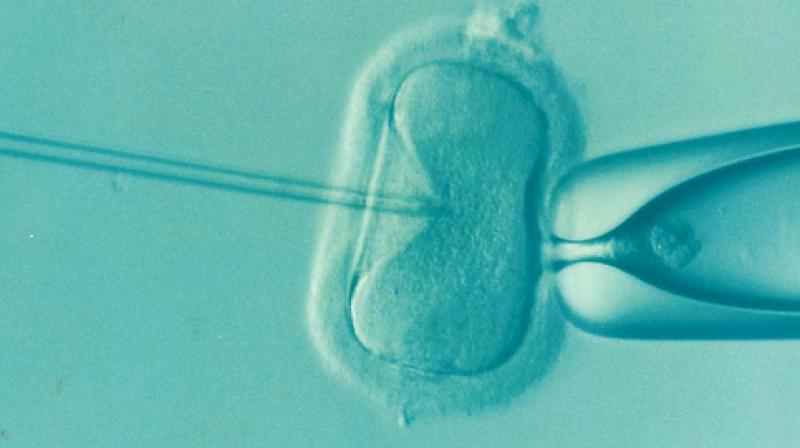Next generation genomic test doubles up success rate of IVF

When it comes to planning a family, parents increasingly want to ensure that there are no roadblocks and risks in their journey. Recent studies have indicated a trend toward declining fertility. In urban areas, more and more women are delaying marriages and childbirth. Reports suggest that the incidence of infertility is already about 10 per cent.
Dr Priya Kadam, Program Director, NIPT, MedGenome Labs elaborates on how next-generation genomic test doubles up the success rate of IVF. She shares that it is very well known that maternal age plays a crucial role in conception. In addition, most pregnancy-related complications increase as maternal age advances. Like in the case of Mrs Swamy, where multiple pregnancies didn’t last more than 6-7 weeks. It was found that the reason of her miscarriage was due to chromosomal defects in the foetus.
In such scenarios, couples are recommended assisted reproduction. In the past few years, In-vitro fertilization or IVF as it is commonly known has emerged as a valuable technique for a woman having difficulty conceiving or facing multiple miscarriages. However, sometimes, cycles fail to achieve the desired outcome. As a consequence, couples go through pain and despair emotionally as well as monetarily.
With advancing technology, there is another test available called Preimplantation Genetic Screening (PGS) which screens the embryos for chromosomal defects. The latest PGS technology are based on a relatively new technology called as Next-Generation sequencing (NGS) which can reasonably accurately and rapidly screen all 46 chromosomes (23 pairs) for chromosomal abnormalities, allowing the clinician to choose healthy embryos for transfer. This technique has doubled the success rate from 36 per cent to 73 per cent, as per a study by Majumdar & Co.
Women considered for PGS include:
- Any women undergoing IVF especially women over 35 years of age
- Women who have had repeated implantation failure
- Women with recurrent miscarriages after IVF
- A positive history of chromosomal defects in the family
- Diagnosed carriers of chromosomal abnormalities
After facing multiple miscarriages, Mr and Mrs Swamy opted for IVF with PGS. Eleven embryos were screened and the best embryo was recommended for transfer which resulted in a healthy baby.
PGS based IVF helps reduce the number of cycles a patient must undergo and also reduces the number of embryos transferred thereby having financial, health and emotional benefits. This technique is gaining acceptance among women undergoing IVF as confirmed in a study the United States that showed 94 per cent of women at a centre said they were happy they screened their embryos with PGS irrespective of the final outcome.
With any test that a couple needs to undergo, certain questions are natural and need to be addressed. How reliable and accurate is it? When is the risk attached to the test? Will it involve any surgical interventions? To answer these questions and others, it is important for prospective parents to have pre and post genetic counselling session.
Today, with the advancement in technology and easy accessibility to information, to-be-parents should be aware of the latest technology in reproductive health to find solutions for their unique situations.

